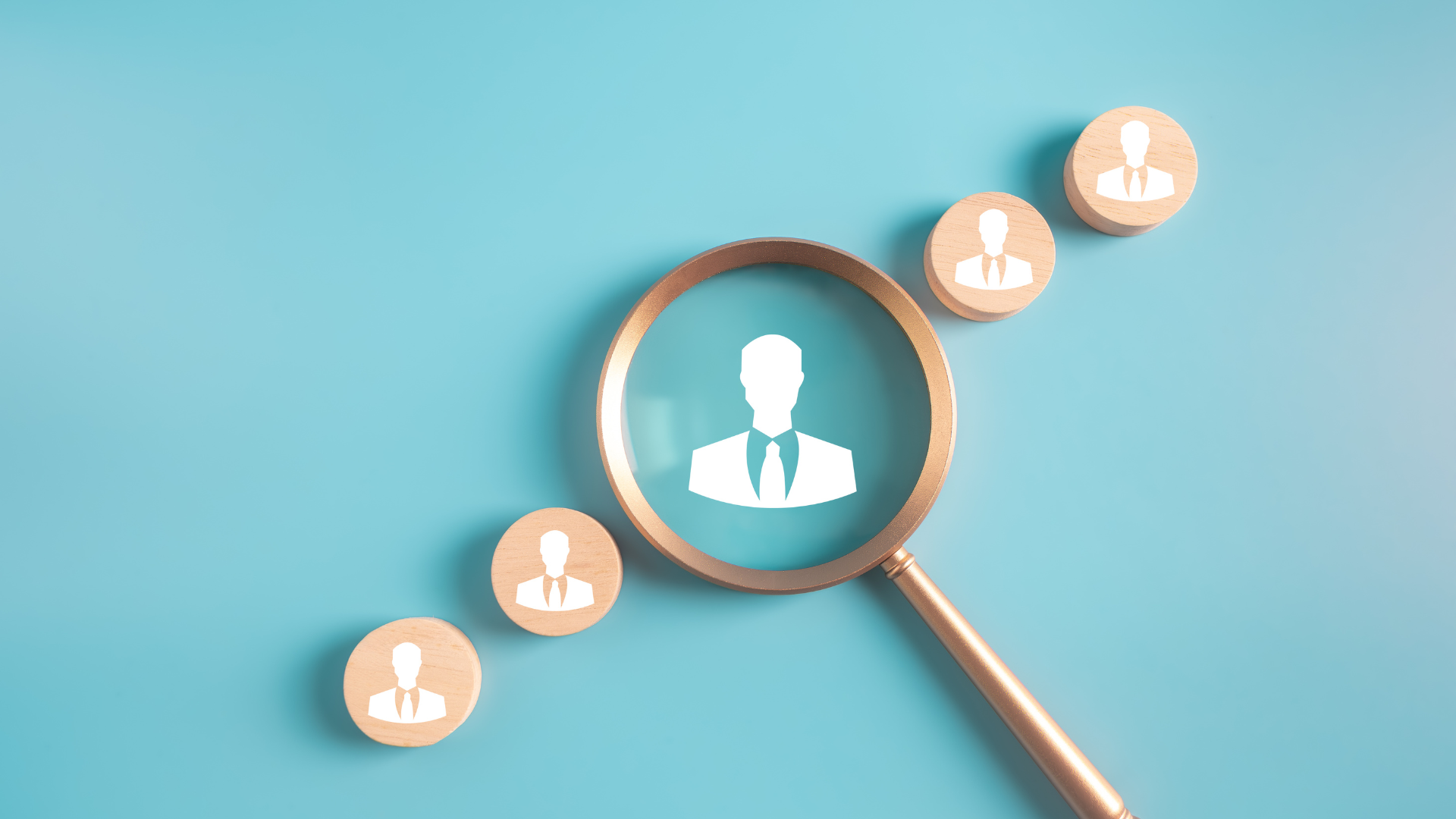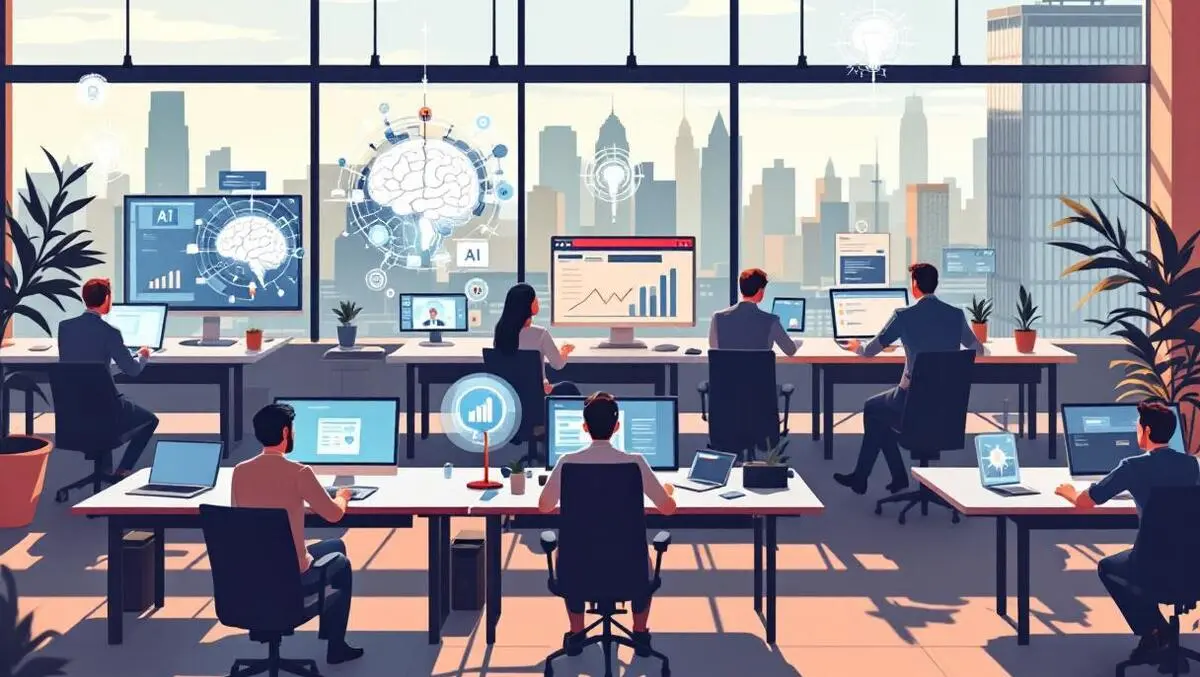The Future of HR with Artificial Intelligence

Artificial intelligence is no longer a futuristic concept reserved for tech companies. It is fast becoming embedded across industries, reshaping processes and roles in real time. Human resources is no exception. In Australia, adoption of AI in HR is accelerating, with applications in resume screening, onboarding, learning, predictive analytics, and even engagement tracking. According to recent studies, while interest is high, the real challenge lies not in the technology itself but in how organisations and people adapt. Alarmingly, research suggests that up to 95% of corporate AI initiatives fail to deliver lasting results, often due to poor planning, weak data, or resistance from employees. For HR professionals, this means navigating not just the opportunities of efficiency but also the pitfalls of bias, compliance, and workforce anxiety.
To unpack this, people2people Specialist Recruitment Manager Leanne Lazarus hosted a panel discussion with three experts: Jonathan Mamaril, Director and Head of Employment Law at South Geldard Lawyers, Sarah Stone, Founder of LinkABLE, and Josh Campbell, Head of HR at Tritium. Together, they explored how AI is already changing HR, the challenges that must be addressed, and what the future holds for the profession.
"AI is an enabler, not a replacement"
Sarah Stone opened the conversation with a clear stance: AI should not be viewed as a threat to jobs but as a tool to eliminate repetitive tasks and enable employees to focus on meaningful work. In her words, "AI is an enabler, not a replacement, helping people work smarter and freeing up time for high-value human-led activities." She highlighted examples already taking shape in HR such as personalised learning pathways, predictive analytics to measure turnover risks, and automation of repetitive admin.
Her emphasis was on hyper-practical adoption—ensuring teams are brought on the journey and not alienated by sudden technology shifts. Stone argued that the greatest return on investment today lies in workflow automation, particularly through agentic AI tools that can adapt to business needs. But she also flagged risks: poor data quality, weak leadership buy-in, and unclear ROI all contribute to wasted investments. One example she cited involved an organisation spending hundreds of thousands on an AI project that ultimately went unused by staff. Her advice was simple: invest in quality data, training, and leadership alignment before jumping into tools.
The HR Practitioner’s View: Bridging Personal and Enterprise Use
From an operational perspective, Josh Campbell offered a candid view of the gap between consumer and enterprise AI. He noted that while employees are already using ChatGPT and similar tools personally, corporate systems lag behind. "The personal use of ChatGPT to supplement professional lives is accelerating faster than the enterprise tools can," Campbell observed, pointing out the growing disparity between what workers can do on their phones and what is permitted within company systems.
Campbell stressed that successful AI adoption requires seamless integration into existing workflows. If staff need to be retrained extensively to use a new AI tool, he argued, then the implementation has already failed. He shared how HR information systems are beginning to include subtle AI features, such as flagging potential burnout through leave analysis. These, he said, demonstrate the potential of AI when implemented thoughtfully—quietly assisting rather than creating hurdles.
However, he also issued a warning for employees. Those relying too heavily on AI for core tasks like drafting correspondence or screening candidates may find themselves vulnerable. "If AI is doing most of your job, you need to retool and prove your value," Campbell cautioned. Instead of replacing humans outright, he suggested, AI provides an opportunity for HR professionals to step up, taking on more strategic and advisory roles while routine work is automated.
The Legal Lens: Compliance and Courtroom Realities
Jonathan Mamaril approached the discussion from a legal and compliance angle. For him, the rapid rise of AI in HR poses new risks that legislation has not yet caught up with. Already, he noted, grievances, complaints, and even employment contracts are increasingly drafted with AI. Too often, these are poorly checked, creating headaches for HR teams and legal practitioners alike. Mamaril shared an example where court submissions included entirely fabricated case citations—a direct result of over-reliance on AI.
He warned that organisations cannot afford to ignore compliance. Employment law, privacy, and intellectual property are all areas where AI raises unanswered questions. "The genie is out of the bottle," Mamaril remarked, adding that simple calls to "check your work" are insufficient. With unions, regulators, and courts still scrambling to keep up, companies face real risks if they lack oversight mechanisms.
Looking ahead, Mamaril suggested that reforms could soon ban AI from being used for final employment decisions. Disclosure requirements for AI use in hiring and performance management may also become mandatory. His advice to HR leaders was to design frameworks that anticipate these legal shifts, ensuring systems can be adapted quickly if regulations tighten.
The Human Impact: Fear, Restructuring, and Evolution
Underlying all three perspectives was a shared recognition of the anxiety AI generates among workers. Employees are asking whether their roles will vanish or evolve. Stone and Campbell were aligned in arguing that most jobs will change rather than disappear. Routine tasks will increasingly be automated, but core human skills such as empathy, creativity, and judgement cannot be replicated.
Still, the panel acknowledged that restructuring is already happening, with companies reshaping roles and redistributing responsibilities. For Mamaril, technology is clearly influencing these decisions, especially in shared services like finance, marketing, and HR. The challenge for leaders is not to resist change but to guide it in a way that protects employees while unlocking efficiency.
Beyond Tools: Strategy and Ethics
The discussion consistently returned to one core principle: AI is a tool, not a strategy. Lazarus reminded the panel that businesses need to integrate AI into their broader organisational goals, not adopt it for novelty’s sake. Stone echoed this by stressing the importance of starting small, piloting solutions, and embedding ethics early. Transparency, she argued, is critical to building trust between employers and employees.
Campbell expanded on this point, noting that simply banning personal AI use will never work. Instead, businesses need policies that reflect how people actually behave. A rigid framework risks being ignored, while a supportive, realistic one encourages responsible adoption. Mamaril added that failure to anticipate legal implications will only create greater risk over time. The balance between innovation and regulation, they agreed, will define the next chapter of HR.
Looking Forward: HR in an AI World
The external debate echoes the panel’s conclusions. Analysts argue that HR as a profession is being reshaped, with transactional tasks increasingly automated and strategic responsibilities expanding. Rather than rendering HR obsolete, AI is accelerating its evolution. Roles will be more focused on culture, strategy, and ethics, while machines handle data-heavy or repetitive functions.
For employees, this means upskilling and embracing AI as a partner, not a threat. For organisations, it means being honest about why they are adopting AI, preparing their people with training, and embedding governance from the start. For regulators, it means catching up quickly to prevent misuse without stifling innovation.
As Lazarus closed the conversation, it was clear that AI’s role in HR is not a distant concern but a current reality. The question is no longer whether AI will transform HR, but how responsibly and effectively leaders can guide that transformation.
Artificial intelligence in HR presents extraordinary opportunities but also profound challenges. As Stone emphasised, it can free employees to focus on meaningful work. As Campbell noted, it can streamline processes and elevate HR professionals into more strategic roles. And as Mamaril cautioned, it also raises serious compliance and ethical questions that cannot be ignored. Together, their perspectives offer a roadmap: approach AI not with fear, but with vigilance, empathy, and purpose.
The future of HR will not be defined by replacing people with machines, but by how people and machines work together to create stronger, more resilient organisations.
Grow your career and teams with people2people
In business since 2005 in Australia, NZ, and the United Kingdom, people2people is an award-winning recruitment agency with people at our heart. With over 12 offices, we specialise in accounting and finance, business support, education, executive, government, HR, legal, marketing and digital, property, sales, supply chain, and technology sectors. As the proud recipients of the 2025 RCSA and SEEK Outstanding Large Agency Awards, we are dedicated to helping businesses achieve success through a people-first approach.
Recent articles

Latest PR features
Copyright 2026, people2people Recruitment







